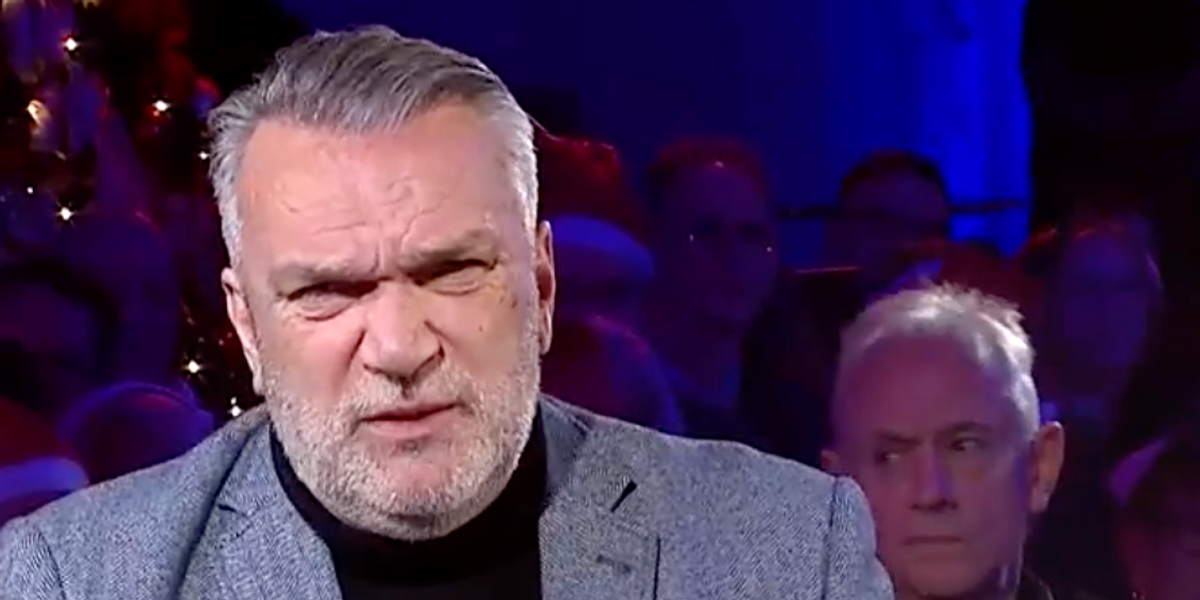Hello, dearest friends! Welcome back to another incredible installment of Am I the Literary Asshole?, the advice column that thinks you should pour yourself a glass of something strong to prepare, because winter is most definitely coming. I’m your host, Kristen Arnett, and it’s officially Sagittarius season. That’s right, the season of impulsive decisions, wild partying, and unwise spending habits. My season! What better way to enjoy a moment of celebrating total Id than by answering some unhinged advice questions? Article continues after advertisement I’ve got a spiked hot cocoa and I’m ready to dig right in. Let’s see what pops up first in the ol’ mail bag, shall we? 1) Am I the asshole if the internet has made me loathe literary culture? Writers who I used to deeply admire have made a whole livelihood out of being obnoxious online. Now whenever I read an author I find myself only thinking of the last heinous thing I’ve seen them post. Whooooo buddy! Starting off strong! The language here is intense. You loathe literary culture? That’s a hell of a statement! To me, this letter reads like you’re simply annoyed and have finally reached your limit. I can kind of get where you’re coming from, though. It seems like maybe you’ve witnessed people being a little Too OnlineTM and it’s made you consider the fact that authors aren’t just names on a spine—they’re real human beings with large opinions who occasionally fuck up and post too much content on the Lord’s Internet. Article continues after advertisement Many people have been guilty of contracting the dreaded Poster’s Brain (I can count myself among this happy faction). I will say this, however. Just because you don’t see a writer posting their strong views on a social media site doesn’t mean that they don’t have them. Guess what? You’re just not seeing them. It’s a blessing and a curse that we’re all so involved in online culture, I think. It means that we can know more about each other, which can be wonderful, but it also means we Know More About Each Other, which can admittedly sometimes be terrible. It’s not going to go away anytime soon, friend. If you need a break from this kind of thing, I can advise you to maybe steer clear of social media. Or at the very least give yourself a break for a bit. Also—and I say this with a lot of love—you don’t have to follow your favorite authors online. You don’t have follow anyone! No one is making you! You don’t have to see an author’s social media if you don’t want to (although maybe you might see that opinion reposted somewhere). If it bothers you that much to see an author you value post something you might not agree with, I urge you to simply not to look. You have that luxury. Although I will tell you this: turning your head away from bad behavior doesn’t make the bad behavior stop. If it’s something that you find morally reprehensible? You can do something about it. You have the ability to look directly at the bad thing and say something about it. I know this is easier said than done. But if you don’t want to leave social media and you want to follow the writers whose work you admire online, then you’re just going to have to get used to the fact that they’re human beings and they might post something pretty dumb at some point. You might have to challenge their views. But that can be an amazing thing, friend. To recognize that at the end of the day, artists are just regular people, too. We all make mistakes and learning from those incidents can turn us into better humans (and possibly better writers). Article continues after advertisement Onward! How much spiked cocoa is too much spiked cocoa? Let’s find out while we roll into our next quandary: 2) Hi, Kristen. Great column. So… I was hired to work with a writer on her novel. I have a fair amount of experience editing manuscripts, have taught fiction, and also am a traditionally published novelist (though only once, and that was years ago!). My clients are usually appreciative of my advice and I always stress that they should make only the changes that resonate with them. I fully recognize how subjective one’s response to creative work can be—just because I enjoy a novel, doesn’t mean others will, and vice versa. However, in this writer’s case, I felt very strongly that a certain reworking of plot and character was necessary. (Her writing workshop felt similarly.) The writer/client resisted all editing suggestions and self-published. Then she asked me to blurb it. I refused. I felt that the book had potential but honestly, I didn’t think it was very good at all. So I said no. I told myself that I’d just be lying if I gave her a positive blurb. Ever since then (this was years ago), I’ve felt bad about it. So she didn’t take my advice, so what. Who is to say that the book really would have been better if she had? I feel like a literary asshole. Should I have given her a positive blurb, despite my belief that the book didn’t deserve praise? Article continues after advertisement Hey, friend. Thanks for writing in! I’m going to go ahead and get this out of the way quickly: you are not an asshole. Rest assured that you have done nothing wrong here. You can sleep soundly at night knowing that you did no great harm. This person hired you for the express purpose of editing their work and offering up your feedback and that is exactly what you did in this scenario. You were not cruel. You were not rude. You did not offer unsolicited advice (which would have made this a very different advice column question). You did what you were paid to do, and this person chose not to take your advice. That is also their right! Just because they paid for your service doesn’t mean they have to use any of your well-intentioned suggestions. If they disagree with you, so be it. I’m of the opinion that people should choose the publishing route that feels right for them and for their work. This person decided to self-publish, which is a completely fine choice. However, it does not mean that they are owed a blurb from you. To be completely honest, friend, they wouldn’t be owed a blurb even if they did take all your edits to heart and were traditionally published. At the end of the day, nobody is ever owed a blurb! They are given when someone decides they would like to provide one. They are a thoughtful gift to a writer. The fact that you’ve felt bad about this for years makes me feel sad. Please don’t trouble yourself over this any longer, friend. You made perfectly fine and reasonable choices, here, and so did the author who hired you. I’m positive this person moved on from this easily—I urge you to do the same. Take care. Article continues after advertisement One more cup of spiked cocoa while we take a peek at our last question of the day. Folks, this is a fun one: 3) Butt Someone legitimately wrote this solitary word into the anonymous question box. I can’t tell if they’re saying the column is butt or I’m butt, but either way it did make me laugh. I figured I’d use this as a rare opportunity to write whatever I’d like for this last part of the column! So I’m going to ask all of you, my beautiful readers, to consider sending a nice compliment out to the author of your choice this holiday season. It’s tough to make art and it’s easy to feel bad about it and yourself in the process. We’re all guilty of it. Why not take a moment to brighten someone’s day instead? And hey, it’s my birthday this week! I’m going to choose to take it easy on myself. So give a writer that you like some praise this week. It will make them feel good. And you know what? I bet it will make you feel good, too. That’s all for this year! Please join me in 2025 when I answer even more of your anonymous questions (hopefully ones that aren’t the word Butt). Cheers to you and yours, my pals. Happy holidays, __________________________ Are you worried you’re the literary asshole? Ask Kristen via email at AskKristen@lithub.com, or anonymously here.
Dad

 By Literary Hub | Created at 2024-12-19 10:43:48 | Updated at 2024-12-25 13:36:52
6 days ago
By Literary Hub | Created at 2024-12-19 10:43:48 | Updated at 2024-12-25 13:36:52
6 days ago










